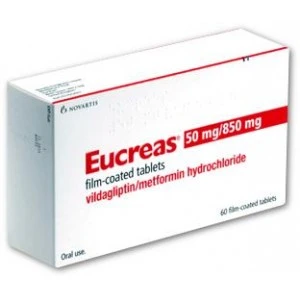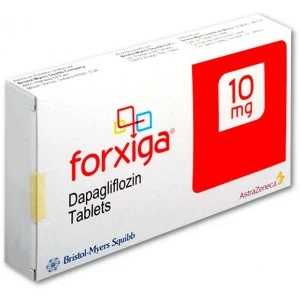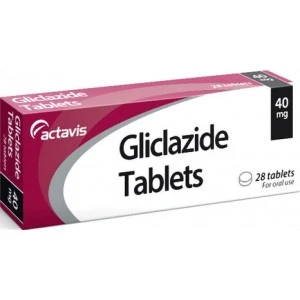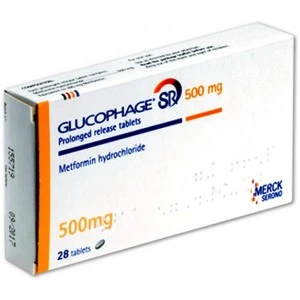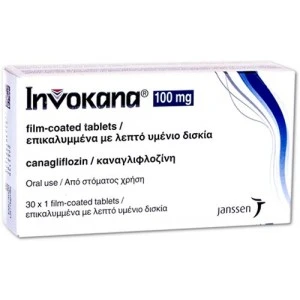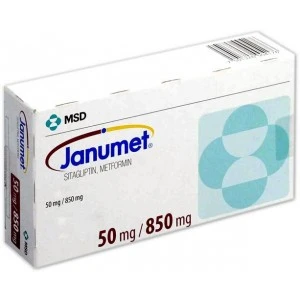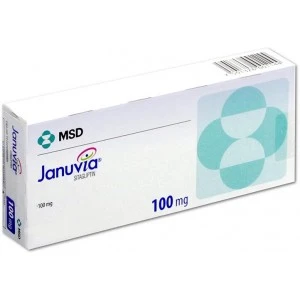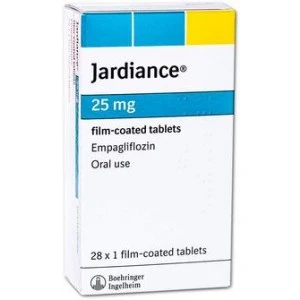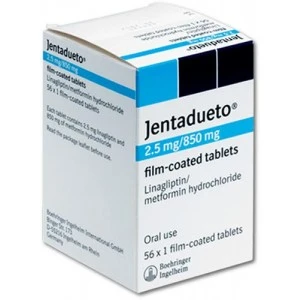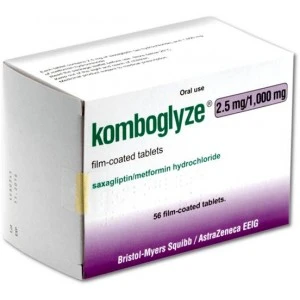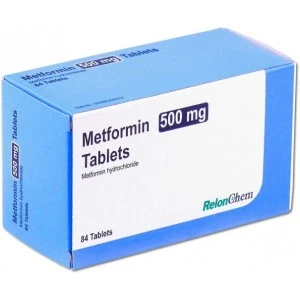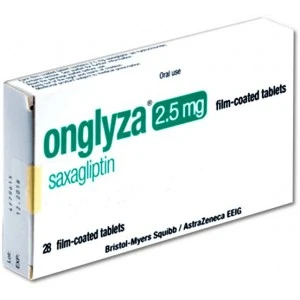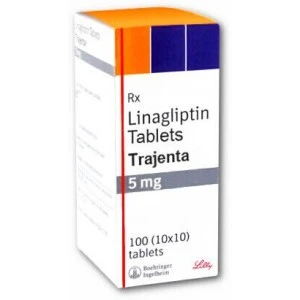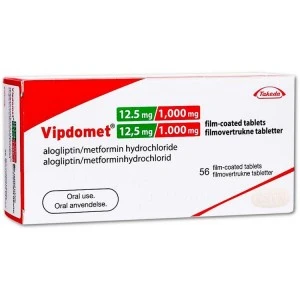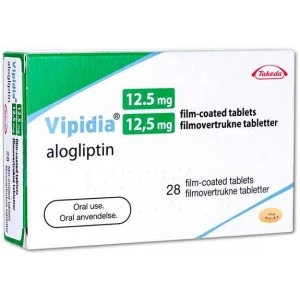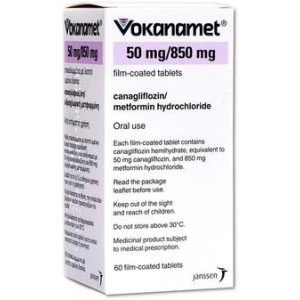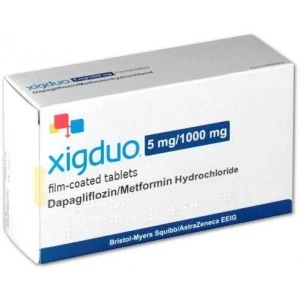Diabetes
Diabetes affects millions of people in the UK. Prescription Doctor offers a number of treatments for diabetes, which are dispensed from a UK pharmacy and delivered in discreet packaging.
Competact
- Lowers blood sugar levels
- Combined metformin and pioglitazone
- Available from our online pharmacy
Eucreas
- Reduces blood sugar levels
- Effective combined treatment
- Dispatched from a UK-registered pharmacy
Forxiga
- Reduces risk of complications
- Manages blood sugar levels
- Dispatched from a UK registered pharmacy
FreeStyle Libre Sensor
- Easy-to-use reader and mobile app
- Painless blood sugar checks
- Available from our UK-registered pharmacy
Gliclazide
- Lowers blood sugar
- Promotes insulin production
- Available from a UK-regulated pharmacy
Glucophage SR
- Branded metformin
- Helps to manage diabetes
- Available from a UK-registered pharmacy
Invokana
- Helps to manage type 2 diabetes
- Lowers glucose levels in the blood
- Available from a UK-registered pharmacy
Janumet
- Prevents complications of diabetes
- Lowers level of glucose in the blood
- Branded Metformin
Januvia
- Reduces risk of complications
- Effectively lowers blood sugar
- Taken once daily
Jardiance
- Branded medication
- Removed glucose via kidneys
- Easy to take 1-a-day tablet
Jentadueto
- More effective than metformin alone
- Qualified doctors on hand
- Dispatched from a UK-registered pharmacy
Komboglyze
- Lowers glucose levels
- Can be taken with food
- Available from UK registered pharmacy
Metformin
- Treats type 2 diabetes
- Reduces complication risk
- Next-day discreet delivery available
Onglyza
- Reduces glucose levels in the blood
- Keeps diabetes under control
- Dispatched from a UK-registered pharmacy
Trajenta
- Stimulates insulin production
- Reduces glucose levels
- Taken once daily
Vipdomet
- Reduces glucose production
- Diminishes blood glucose levels
- Dispatched from a UK-registered pharmacy
Vipidia
- Regulates glucose in the blood
- Increases insulin production
- Available from UK-registered pharmacy
Vokanamet
- Effectively manages glucose levels
- Reduces complication risk
- Available from a UK-registered pharmacy
Xigduo
- Controls blood glucose
- Prevents complications
- Available from our UK Pharmacy
What is diabetes?
Diabetes is a condition which causes high levels of glucose (sugar) in the blood.
Glucose, which we get from our diets, is our body's main source of fuel. It is used by the millions of cells in our bodies to perform their functions, keeping our bodies at the right temperature or generating new cells.
After eating carbohydrates, acids and enzymes in the stomach break down the food, digesting it into lipids (fats) and glucose (sugars).
The contents of the stomach are moved through the intestine. Cells inside the intestinal wall absorb the glucose, moving it from the digestive tract and into the bloodstream.
Once in the bloodstream, glucose can either be used by cells throughout the body or converted into glycogen by the liver for later use.
For the cells to utilise glucose, a hormone called insulin is necessary. This hormone is made in the pancreas and released into the bloodstream. Insulin is necessary to transport glucose from the blood to the cells, where it can be utilised as energy.
Insulin and diabetes
Insulin is the hormone which regulates the amount of glucose in the blood. It acts as a carrier to transport glucose molecules into cells, which use or "burn" the glucose to carry out their functions. Without a regular supply of glucose, cells struggle to function normally. This causes cell regeneration to slow down, resulting in cuts that may take longer to heal.
The amount of insulin in the body is regulated and dependent on the amount of glucose present in the blood. Before a meal, your blood glucose level may be between 70 and 120 milligrams per decilitre of blood.
After eating a meal, it's common for glucose levels to peak at a high 180mg/dL, though this should usually drop back down to the normal range of 70 to 120mg/dL.
In people with type 2 diabetes, there is either an insufficient amount of insulin in the body to manage the level of glucose in the blood or the insulin their body produces is ineffective at reducing their blood glucose level.
Type 1 diabetes is when the pancreas fails to make insulin. Because their body does not produce insulin, a person with type 1 diabetes will need to inject insulin.
Complications of diabetes
If diabetes is left untreated, a number of complications can arise.
Having a high amount of glucose in the blood increases the risk of heart disease and stroke as it affects the circulatory system.
The complications of diabetes may be exacerbated in those who smoke. If you have been diagnosed with diabetes, it would be beneficial to quit smoking.
Other complications attributed to diabetes include:
- Erectile dysfunction
- Increased risk of infection
- Kidney infections
- Nerve damage (Neuropathy)
- Eye damage (Retinopathy)
Diabetic neuropathy
Excessive glucose in the blood can damage the nervous system over time, resulting in diabetic neuropathy.
This damage can result in numbness, tingling or pain in the extremities, particularly the feet.
Foot care
Taking extra care of your feet is important if you have been diagnosed with diabetes. Injuries to your feet can take longer to heal. As a result, infections such as gangrene are more likely to set in.
Ensure your feet are kept clean and dry. Avoid going outdoors barefoot, wearing ill-fitting shoes or putting your feet at risk of injury.
If you notice any changes to your feet, such as numbness, pain, cuts, cracks or blisters, speak to your doctor or diabetes nurse.
Diabetic retinopathy
Diabetic retinopathy is a complication of diabetes which affects the eyes. If left untreated, diabetic retinopathy can cause blindness. This condition occurs when blood vessels at the back of your eye bleed.
You will need to undergo regular diabetic eye screening to monitor your risk. Diabetic eye screening differs from optician check-ups, which assess your eyesight.
If caught early, diabetic retinopathy can be slowed down or halted to prevent further damage to the eyes. However, if the condition is not detected in time, there is an increased risk that it can affect your eyesight, resulting in blurred vision, sensitivity to light, or dark floating spots in your vision.
If you notice any changes to your vision, please consult your GP or diabetes nurse.
Measuring blood glucose levels
While undergoing treatment for diabetes, the level of blood sugar will need to be regularly monitored. This can be done at home using a blood glucose meter.
The way you use your blood glucose meter will depend on the make and model, although most models will utilise test strips and require a blood sample.
Insert a test strip into the blood glucose meter, ensuring you are ready to collect blood.
Using a lancet, pierce the side of your fingertip.
Hold the test strip near the blood drop. You don't need to apply pressure. As soon as the test strip comes into contact with the blood, the drop of blood will be absorbed by the test strip.
Wait for a few seconds, and the meter should produce a reading. The length of time it takes for the reading to show up, as well as the unit of measurement, will depend on the make and model of your meter.
If you are unsure about how to take a reading from your meter or what the reading means, consult your doctor for further guidance.
Tracking your blood sugar levels
It's essential for your healthcare provider to monitor how your blood levels change throughout your treatment.
Your blood glucose meter may store your readings in internal memory for your healthcare provider to review at a later date.
Alternatively, your doctor may advise you to record your readings in a diary.
It may be additionally helpful to track your blood glucose meter readings alongside what you ate in a food diary. This can provide further context as to why blood sugar levels were higher on some days and lower on others. Your doctor can use this information to provide advice based on your individual needs, including appropriate and actionable adjustments to diet and lifestyle habits.
Your GP will review your condition on a regular basis.
Frequently asked questions
What is a "hypo"?
Hypoglycaemia, commonly referred to as a "hypo", is when the level of glucose in the blood drops dangerously low, usually below 4mmol/L/L.
A hypo can come on suddenly without warning, so it's vital to know what the signs are and what you should do if you start to have a hypo.
Symptoms of hypoglycaemia include:
- Anxiety
- Blurred vision
- Fatigue
- Feeling tearful
- Headache
- Hunger
- Lack of concentration
- Lips tingling
- Pale complexion
- Palpitations (fast heart rhythm)
- Sweating
- Trembling
For further information about hypos and what to do if you experience one, please visit this link.
Speak to your doctor or diabetes nurse for more advice on what to do in the case of a hypo.
Is there a cure for diabetes?
Not quite. Type 2 diabetes can sometimes be reversed with appropriate changes to diet and exercise. However, type 1 diabetes (insulin-dependent) is an autoimmune disease which cannot be cured.
Both type 1 and type 2 diabetes can be controlled with changes in diet and exercise, as well as medication.
For advice on managing diabetes, speak to your doctor.
How many people in the UK have diabetes?
It is estimated that more than 4 million people in the UK have diabetes, which is expected to rise to 5 million by 2025. 90% of cases are for type 2 diabetes, which is often preventable through adjustments to diet and exercise. The remaining 10% are type 1 diabetes.
Can weight loss medication treat diabetes?
Studies have shown that metformin, a drug to treat diabetes, and orlistat, a drug to treat obesity, have similar effects on weight loss.
In a 1-year, multicentre, randomised, double-blind, placebo-controlled trial of orlistat in obese patients being treated for type 2 diabetes with metformin, it was shown that orlistat was a "useful adjunctive treatment".
Buy Diabetes treatments online
Prescription Doctor makes it easy to buy metformin and other diabetes treatments online without hassle.
Our UK-registered pharmacy stocks several antidiabetic drugs, including:
- Competact
- Glucophage
- Metformin
Our online private prescription service offers a next-day discreet delivery service to ensure the strictest confidence.
You should consult your doctor before taking any new medications or making significant changes to your diet.
Authored & Reviewed By

Mohamed Imran Lakhi
MPharm - Lead PharmacistPublished on: 16/01/2020 Reviewed on: 28/04/2023
© 2013 - 2026 Al Muhsineen Limited. All Rights Reserved. Registered Pharmacy: 34 Halliwell Road, Bolton BL1 8RL. Registered Office: 254 First Floor, Shearbrow, Blackburn, England, BB1 8DS


